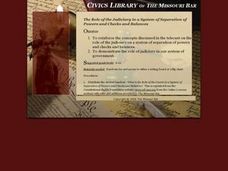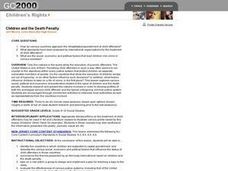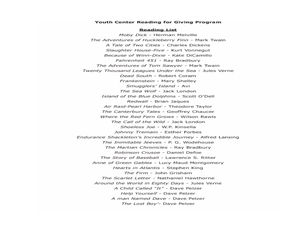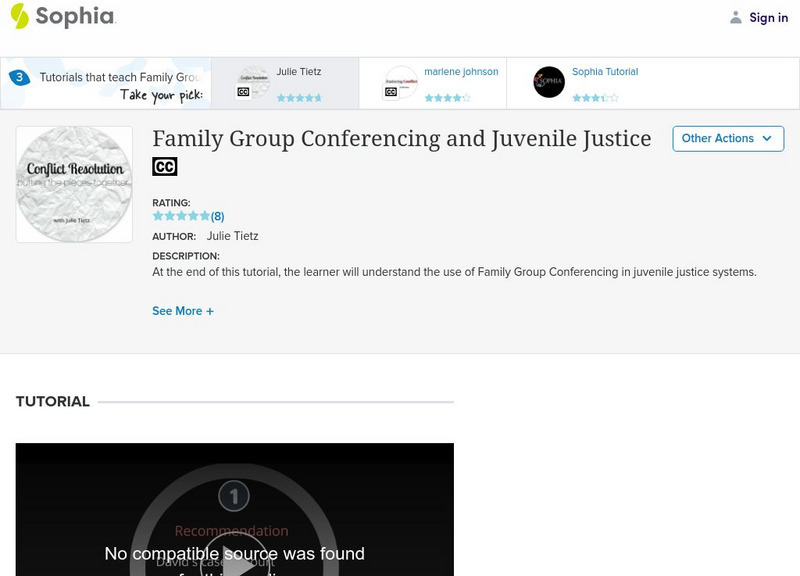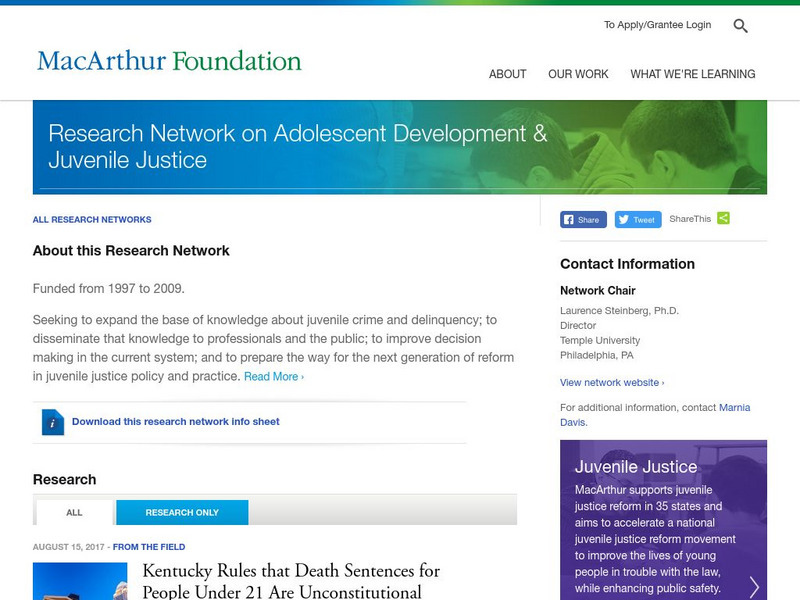Curated OER
Law 12 or First Nations Studies
Students examine issues related to Aboriginal youth in Canada. They analyze the Juvenile Justice Act, discuss the pros and cons of Aboriginal people having their own justice system, and prepare and participate in a mock trial.
Judicial Learning Center
Getting Ready for Trial
A courtroom can be a scary place for the uninitiated. Get familiar with the process using a helpful overview of the activities that take place prior to both civil and criminal cases. The lesson explains the differences between...
Curated OER
Teens on Trial
Students read about the public reaction to the conviction of Alex and Derek King, and explore the issue of child offenders being tried and sentenced as adults. They compose letters to Florida Governor Jeb Bush, outlining their opinion on...
Curated OER
Allen's Dilemma
Students read, discuss and act out an actual case study dealing with a juvenile crime. They complete discussion questions associated with case study.
Curated OER
Shoplifting Simulation
Pupils distinguish between grand and petty larceny. They become aware of the individual rights of minors and explain the procedures of a closed juvenile hearing. They realize the severity of the crime of shoplifting.
Curated OER
Government: Missouri Bar Civics Library
Students visit the Missouri bar Website to examine information about the U.S. Constitution and its Amendments. They complete a variety of activities from the provided lessons including the judiciary, Fourth Amendment issues, civil law,...
Alabama Learning Exchange
Read All About It! Supreme Court Case Makes Headlines!
Students are assigned a landmark Supreme Court case to research. They construct a one-page newsletter on the case which include a summary of the case, two pictures and a short biography on one of the justices on the Court at that time.
Curated OER
Children and the Death Penalty
High schoolers examine how different countries deal with juvenile offenders. Using the internet, they research what offenses are punishable by death and how the laws protect students. They interview local authorities and discuss...
Curated OER
Guardian Ad Litem & Child Intermediary
Students research and answer questions about a guardian ad litem. They are to create situations in which a guardian ad litem or child intermediary would be used.
Curated OER
Correctional Facility Reading
Students complete an independent reading program. In this "Reading for Giving Program" created for students in correctional facilities, students spend time reading independently and responding to the book they read. Please note: Although...
Curated OER
Domestic Abuse and Order For Protection
Learners read an article about the laws pertaining to cases of domestic abuse. They take a quiz, consider how they might help a friend involved in an abusive situation and participate in a mock trial where they examine varying points of...
Curated OER
Harassment and Restraining Orders
Students discuss harassment and what to do if they feel they are being harassed. They examine various scenarios and discuss whether or not harassment is taking place and whether a restraining order or an order of protection is warranted.
Sophia Learning
Sophia: Family Group Conferencing and Juvenile Justice
At the end of this tutorial, the learner will understand the use of Family Group Conferencing in juvenile justice systems.
Other
Mac Arthur Foundation: Research Adolescent Development and Juvenile Justice
This collection of research on adolescent development helps expand the base of knowledge about juvenile crime and delinquency, disseminate that knowledge to professionals and the public, improve decision making in the current system, and...
Syracuse University
Syracuse University: Youth Due Process Gerald Gault
This site contains a description of the juvenile justice system, background on the case involving Gerald Gault, and learning exercises for teachers to use in class.
Thomson Reuters
Find Law: u.s. Supreme Court: In Re Gault (1967)
Full court transcript of 1967 U.S. Supreme Court case involving a juvenile, Gerald Gault.
CNN
Cnn: Opinion: Kids Should Never Be Tried as Adults
In this editorial, the author outlines the case for why minors who commit crimes should not be tried as adults. Includes examples, including that of a 9 year old tried in the adult justice system.
iCivics
I Civics: Sources of Law
This lesson teaches students about the sources, types, and unique systems of law that exist in the United States. They learn about sources of law from the Constitution to local ordinances and also compare and contrast civil and criminal...
CommonLit
Common Lit: Book Pairings: "Holes" by Louis Sacher
Stanley Yelnats is sent to a juvenile correctional camp for boys where each day he is forced to dig holes into a dry lake bed. Selected (8) reading passages (grades 5-8) to pair with the novel "Holes" by Louis Sacher. [Free account...
Cornell University
Cornell University: Law School: In Re Gault
The full text of the Supreme Court opinion, delivered by Mr. Justice Fortas, which reversed the judgement in the 1967 Arizona case against 15-year old Gerald Gault.
iCivics
I Civics: In Re Gault (1967)
This mini-instructional activity covers the basics of the Supreme Court's decision that said juvenile offenders have a right to due process. Young scholars learn about 14th Amendment due process, fairness, and the specific rights...
PBS
Pbs Learning Media: Now: Do Now: Should Teens Who Commit Serious Crimes Be Sentenced as Adults?
Click on Watch on YouTube to watch the FRONTLINE film "Stickup Kid." Then Do Now activity, students engage in a conversation around teen sentencing and discuss the question: Should teens under 18 be tried and sentenced as children or...







